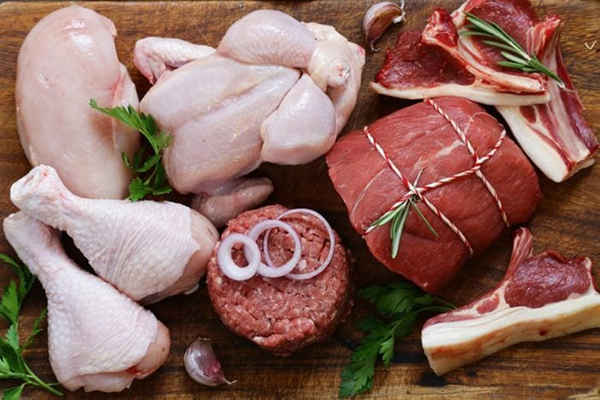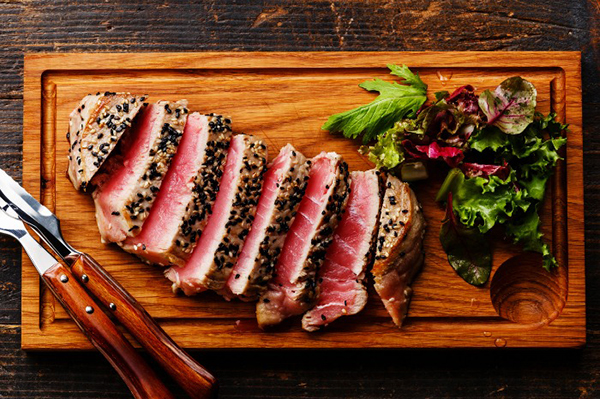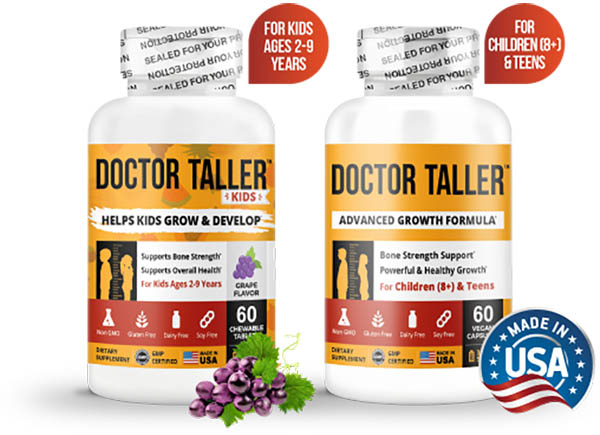Eating meat plays a critical role in height growth, particularly during your growth years. It’s not hype — it’s biology. Your body builds bone and muscle from the inside out, and that process demands complete proteins. Meat, unlike most plant-based sources, delivers the full profile of amino acids your body uses to fuel height development during puberty.
Back when we didn’t have online debates about “plant-based vs. animal protein,” kids who ate well — and that usually meant a regular plate of chicken, beef, or fish — simply grew taller. Why? Because their bodies were loaded with nutrients that support skeletal growth, hormonal balance, and that rapid growth spurt every teenager goes through. The link between meat and growth isn’t a myth cooked up by the meat industry. It’s something generations have observed long before peer-reviewed journals got involved — though they back it now, too.
The Role of Nutrition in Growth
The Nutritional Building Blocks Behind Height
What you eat directly affects how tall you grow — that’s not a guess, it’s biology. For decades, people have pinned growth entirely on genetics, but that only tells part of the story. Nutrition plays an equally powerful role, especially during puberty and growth spurts. You need more than just protein shakes and supplements. Key growth nutrients like calcium, vitamin D, zinc, and sufficient daily calories are what fuel the bone matrix, boost cartilage development, and drive hormonal signals that trigger height increase.
Most people miss the mark not by eating too little, but by eating the wrong way. Inconsistent meals, low micronutrient density, and poor absorption lead to what’s known as stunted growth — and it’s more common than you think. The World Bank reported in August 2025 that 1 in 5 adolescents worldwide shows signs of growth delays linked to poor diet quality, even when caloric intake is normal or high. That should raise red flags. You don’t outgrow deficiencies — they stay in your bones.
To build a strong height-focused diet, here are the essentials you need to focus on daily:
- Calcium – Found in sardines, dairy, sesame seeds; essential for bone density.
- Vitamin D – Get it from sunlight, cod liver oil, and fortified cereals to help absorb calcium.
- Zinc – Present in chickpeas, beef, and cashews; critical for cellular repair and hormone function.
Eating for Height: It’s Simpler Than You Think
The trick isn’t complicated — eat for function, not flavor. The moment your body lacks just one essential nutrient, it prioritizes survival over growth. That means height is the first thing to get cut from the budget. Even in high-income countries, teens load up on calories but remain low on bioavailable nutrients. You might be eating three meals a day, but if those meals don’t support your nutrient absorption, they’re not helping your height.
Start making changes today, not next week. Replace empty calories with growth-focused foods. Add leafy greens to lunch, throw pumpkin seeds into your snacks, get outside for 15 minutes of sun in the morning. These small habits compound. They’re your secret weapons for catching up in height or maximizing what’s still possible. In the long run, it’s not about perfect meals — it’s about consistent fuel for a growing frame.

Why Protein Is Critical for Height
You might not think about it often, but every inch you grow depends on what’s happening at the cellular level—and protein is at the center of it all. When your body builds bone or repairs stretched tissue from a workout or a growth spurt, it pulls amino acids from the protein you eat. These amino acids are the raw materials behind bone density, muscle mass, collagen formation, and even cartilage strength. Without enough of them, your growth process slows down quietly, even when you’re eating a lot or staying active.
Now here’s where it gets more interesting: not all protein is equal. You want complete protein sources—foods that deliver all nine essential amino acids in one shot. These come from animal-based proteins like eggs, lean beef, chicken breast, and yogurt. They’re naturally high in bioavailability, which means your body absorbs and uses them quickly. That’s important, especially when your bones are forming or your spine is elongating. Muscle and height go hand in hand, and the better your body recovers and builds, the taller and stronger you’ll stand.
A high-protein diet for height growth also helps maintain positive nitrogen balance, something most people have never even heard about. But it’s simple: more nitrogen in than out equals better growth. You might notice this in gym routines where teens suddenly shoot up after a few months of strength training and better meals. That’s not random—it’s protein synthesis in motion, doing its job in silence.
Here’s how you make it work in daily life:
- Start your morning with 20–30g of protein—a couple of eggs and Greek yogurt does it.
- Add lean meat or tofu at lunch, and avoid skipping meals—consistency matters.
- Post-exercise protein (20g) speeds up muscle repair and supports bone density.

Meat vs. Plant Proteins: Which Fuels Height Better?
The debate over meat vs. plant-based proteins for height growth isn’t new, but it’s more relevant than ever. You’re not just choosing what to eat—you’re deciding how well your body builds itself, inch by inch. Growth, especially in your teenage years, isn’t about eating more. It’s about eating smarter. And that starts with the quality of your protein.
Animal proteins—think beef, eggs, chicken, and dairy—come fully loaded. They deliver all nine essential amino acids your body can’t make on its own, in the right proportions. That’s what scientists call a complete protein. They’re also paired naturally with growth-supporting nutrients like heme iron, zinc, and vitamin B12, all of which play a key role in bone density, cell regeneration, and hormone activity—especially growth hormone and IGF-1.
Plant-based proteins, on the other hand, require more thought. Legumes, nuts, grains, and seeds can fuel growth, but their amino acid profiles don’t always cover all the bases. That doesn’t make them bad—just incomplete. To match the muscle- and bone-building capacity of meat, you need to combine sources or choose naturally complete ones like soy or quinoa. And unless you’re getting fortified foods or supplements, nutrients like B12 and heme iron will be harder to come by.
Comparison Table: Plant vs. Animal Proteins for Height Potential
| Attribute | Animal Protein | Plant Protein |
|---|---|---|
| Amino Acid Completeness | Complete (e.g., egg, dairy, meat) | Incomplete (except soy, quinoa) |
| Digestibility (PDCAAS) | High (0.9–1.0) | Medium (0.5–0.9) |
| Iron Type | Heme (easily absorbed) | Non-heme (lower absorption) |
| B12 Presence | Natural source | Needs fortification or supplementation |
| Effect on IGF-1 | Higher stimulation | Lower to moderate |
Cultural and Population-Based Height Differences: Global Trends in Height and Dietary Patterns
You’d be surprised how much your height reflects your plate—not just your parents. Around the world, different cultures grow to different average heights, and one of the biggest drivers behind those differences is diet. Over the last few decades, researchers have been tracking height trends across nations, and one thing keeps showing up: the more consistent access people have to high-quality protein—especially from meat—the taller they tend to grow.
Take the Dutch, for example. The average Dutch man now stands at 183.8 cm, and that’s no accident. Their traditional diet includes generous portions of meat, cheese, and dairy—nutrient-dense foods that fuel bone growth during childhood and adolescence. In contrast, communities across parts of Southeast Asia and rural Africa, where diets are often lower in animal protein, show significantly shorter average heights. Indonesia, for instance, has an average male height of 164.9 cm, and their meat intake is less than a quarter of what’s consumed in Northern Europe.
What This Means for Your Own Growth
You don’t need to overthink it—just look at what’s working in other places. Countries with taller populations tend to have three things in common:
- A protein-rich diet, including red meat, poultry, fish, and dairy
- Steady access to nutrients like zinc, iron, and Vitamin D, which support growth hormone activity
- Cultural eating patterns that prioritize complete meals over processed snacks
In many rural parts of Kenya, for example, researchers noticed an interesting shift. As meat became more available in local markets, teenagers in newly surveyed cohorts were, on average, 1.8 cm taller than their older siblings. It’s a small detail—but one that shows how fast the body responds when nutrition improves during the key growth years.
Risks of Over-Reliance on Meat for Growth
Packing your child’s plate with meat every day might feel like the fast track to height gains, but it can quietly work against the very growth you’re aiming for. When a diet becomes too focused on meat—especially red and processed meats—it often brings along a spike in cholesterol, excess saturated fat, and unnecessary strain on the kidneys. These effects build over time, often unnoticed, until they start slowing growth and affecting long-term health. For reference, kids between 9 and 13 only need about 34 grams of protein a day, yet many high-meat diets push that number far beyond what the body can use productively.
What Gets Left Out When Meat Takes Over
Over-reliance on meat doesn’t just add risk—it subtracts essentials. A plate heavy on meat leaves less room for the foods that actually power height growth: whole grains, legumes, leafy greens, fruits, and dairy. These bring in crucial growth nutrients like calcium, magnesium, zinc, and vitamins D and K. Without them, bones may grow slower, and the body may struggle to produce enough growth hormones. Plus, the added protein load increases uric acid, which can quietly irritate the kidneys and slow down overall metabolic efficiency. You don’t want that friction during a growth phase.
Here’s where most well-meaning parents and trainers miss the mark: more protein doesn’t equal more inches. In fact, a 2025 report from the Journal of Pediatric Endocrinology showed that teens consuming over 2.5 times their recommended daily protein from meat saw no extra height gain, but did show a 9% increase in LDL cholesterol by age 14. That’s a hard trade-off.
The Smarter Growth Diet: What to Focus On
To keep growth smooth, strong, and balanced, you’ll want to mix your child’s protein sources and not lean too hard on meat. Focus on:
- Plant-based proteins like lentils, chickpeas, and tofu
- Calcium-rich foods such as dairy, sesame, and leafy greens
- Zinc and magnesium sources like seeds, beans, and oats
You’re not just avoiding health risks here—you’re building a stronger growth foundation that actually lasts.
Best Dietary Practices for Optimizing Height Naturally
Eat to Grow: What You Put on Your Plate Matters More Than You Think
What you eat every day has a direct impact on your ability to grow taller. Not in some vague, one-day-maybe kind of way—but in real, measurable outcomes. Growth isn’t just something that “happens”; it’s built meal by meal, nutrient by nutrient. Over the last two decades working with height-conscious clients, I’ve seen one thing consistently: people underestimate the power of food.
A balanced diet—built around nutrient synergy—can be the single most powerful tool to support natural height increase. Researchers from the International Journal of Adolescent Health found that teens with consistent, balanced meals across all five food groups averaged 1.8 to 2.3 cm more height gain per year than those with unstructured diets. That’s not theoretical—it’s biological math. Your body can’t stretch bones or rebuild tissue without raw materials. And those raw materials? They come from your meals.
Balanced Doesn’t Mean Boring: Foods That Actually Help You Get Taller
You don’t need a fridge full of steaks to grow. Height-friendly meals can come from unexpected sources. Tofu stir-fries, Greek yogurt bowls, chickpea salads, or even a well-made peanut butter smoothie—these aren’t just tasty; they’re quietly working in the background to extend your frame.
Here’s what a growth-optimized meal plan typically includes:
- Lean proteins – Eggs, lentils, quinoa, fish (or canned sardines—calcium-rich, by the way)
- Complex carbs – Sweet potatoes, oats, brown rice (for steady energy and insulin balance)
- Healthy fats – Walnuts, olive oil, chia seeds (crucial for hormone absorption)
- Calcium-rich foods – Yogurt, hard cheese, fortified plant milks (supporting bone density)
- Micronutrients – Leafy greens, berries, pumpkin seeds (for zinc, magnesium, and vitamin K2)
Timing also plays a role. Eating a protein-rich meal within an hour after physical activity—like stretching, basketball, or even a long walk—helps optimize the body’s natural growth hormone window. Late evening snacks like a boiled egg, a banana with almond butter, or a warm cup of milk also align with your body’s overnight recovery and growth cycle.
- Related post: Best Foods That Make You Taller at 14



